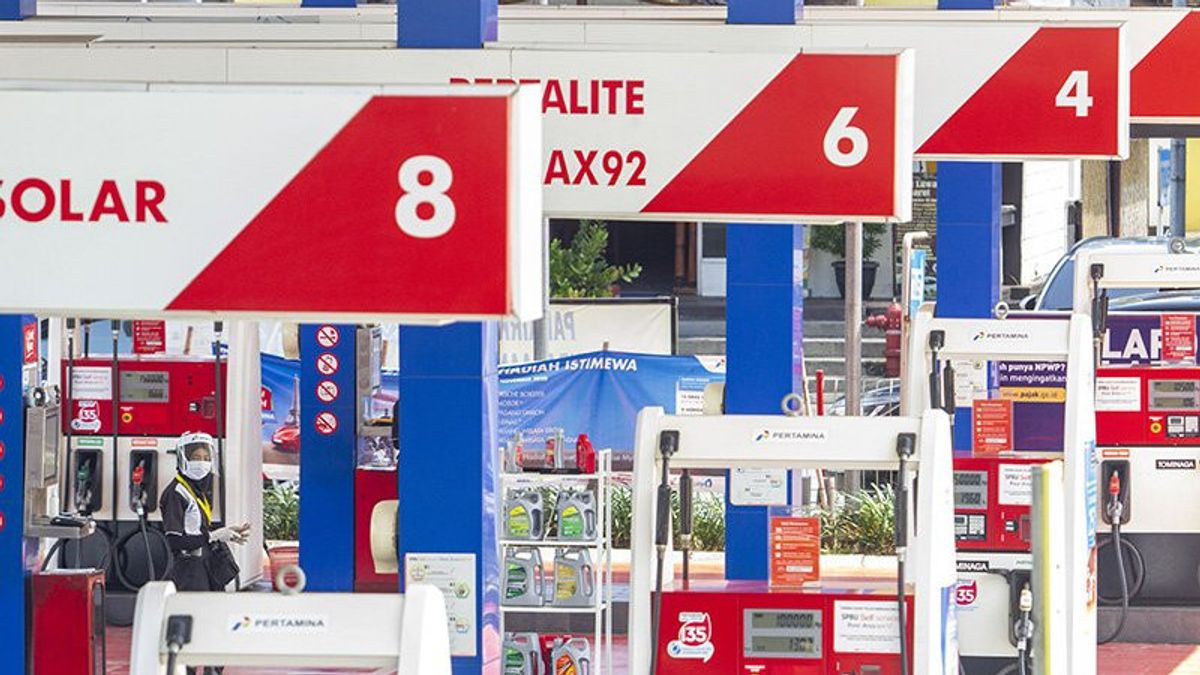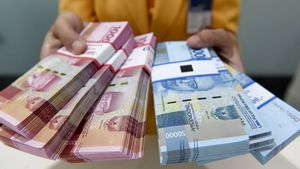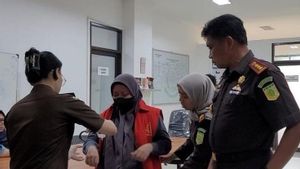JAKARTA - The government's plan to shift the budget for social assistance (bansos) to energy subsidies to reduce pressure on the state budget has received criticism from various circles. One of them came from an economic observer from the Center of Reform on Economics (CORE) Indonesia Yusuf Rendy Manilet.
According to him, the transfer of the allocation is not appropriate at this time. The reason is that social assistance has a strategic role in maintaining the welfare of the community directly and on target. On the other hand, fuel subsidies are open and have the potential to cause irregularities in the distribution process.
"I think the subsidy budget policy should be juxtaposed with maintaining the budget ceiling for social assistance," he told VOI, Thursday, March 31.
In fact, Rendy suggested that the government could spend more resources so that the two schemes of assistance to the community could go hand in hand without underestimating the role of one of them.
"Even if you really want to maintain people's purchasing power, especially in the month of Ramadan, the government can add social protection assistance posts," he said.
Furthermore, the CORE economist revealed that this method is very possible considering the government also benefits from soaring world oil prices.
"Indeed, this budget has the potential to increase the government's spending budget, but don't forget that with the increase in commodity prices, the revenue side also gets a windfall that can be compensated for by adjusting the spending budget without having to worry about disrupting the government's fiscal consolidation plan this year and next year," he said.
Similarly, the Minister of Finance (Menkeu) for the 2013-2014 period, Chatib Basri, stated that the policy of diverting social assistance funds into fuel subsidies could create its own problems.
He said, if the government only provides budgetary support for one type of fuel and releases another type of fuel according to market mechanisms, it will cause quite striking price volatility.
“There are things that need to be anticipated, especially regarding the price gap. If Pertamax increases to Rp. 16,000 and Pertalite remains Rp. 7,650, there will be a migration (from users of expensive BBM to cheap BBM)," he said via @ChatibBasri.
If this assumption is true, then a new problem will emerge that will push the APBN into a stronger dilemma.
"This can lead to over-quota and the burden on the state budget to rise sharply," said Chatib.
Therefore, the Minister of Finance of the era of President SBY gave a signal that the government needed to maintain the social assistance program without reducing or even eliminating the social assistance budget that had previously been recorded in the APBN ceiling.
"It's better to direct targeted subsidies to people than goods (fuel subsidies)," he said.
As is known, the discourse of changing the social assistance budget into energy subsidies was first raised by Minister of Finance Sri Mulyani at a press conference on the realization of the State Budget earlier this week. According to Sri Mulyani, the use of the budget will be focused on strengthening energy subsidy posts, such as fuel, LPG and electricity.
"So if in 2020, 2021, the domination of the recipients was targeted social assistance which was by name, by address, or by the number of the recipient of assistance, now in 2022 due to the spike in subsidized prices, the social assistance has turned into subsidies in the form of goods, namely fuel, LPG and electricity," he said.
The English, Chinese, Japanese, Arabic, and French versions are automatically generated by the AI. So there may still be inaccuracies in translating, please always see Indonesian as our main language. (system supported by DigitalSiber.id)













